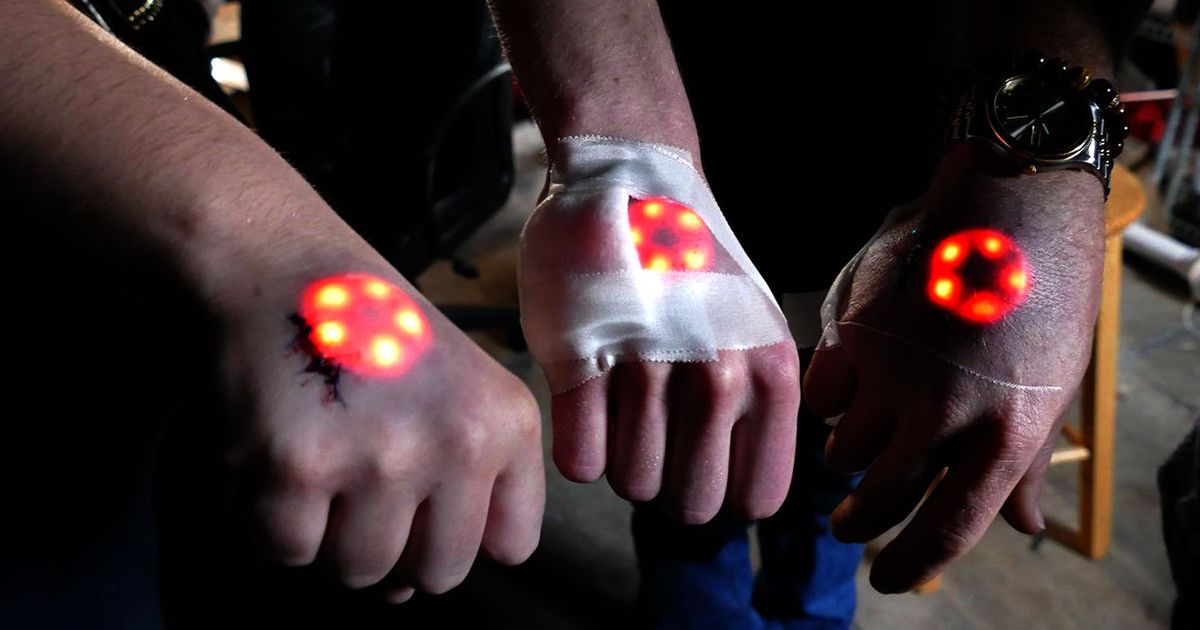Elon Musk talks about Neural Lace.
Elon Musk discusses his views on AI integration in every day life.
Elon Musk talks about Neural Lace.
Elon Musk discusses his views on AI integration in every day life.

Using light, a team of MIT researchers were able to print 3D structures that “remember” their original shapes. Even after being stretched, twisted, and bent at extreme angles, the structures sprang back to their original forms within seconds of being heated to a certain temperature “sweet spot.”
Beyond 3D-printed dinners, additive manufacturing has helped create artificial jaws, better prosthetics, and even brain tumors. Researchers at MIT have found a way to print 3D structures that remember their original shapes within seconds of being heated at a specific temperature “sweet spot,” paving the way towards developing tiny drug capsules that open upon early signs of infection.
Researchers often turn to 3D printing to fabricate shape-memory structures since the technology lets them to custom-design structures with relatively fine detail. The only problem is that conventional 3D printers come with size restrictions—the structures’ details can’t go any smaller than a few millimeters, and the restriction limits how fast the material can recover its original shape.
These elephants have a second chance to walk again, thanks to new prosthetic legs.
Melissa Loomis, an amputee, is pushing the sensory capabilities of the most advanced neuroprosthetic in the world.
I recently had the pleasure to speak with Eidos Montreal’s primary bionics consultant for the Deus Ex series, Will Rosellini.
Will has been involved with the franchise since the development of Deus Ex: Human Revolution and has had a major influence on the developer’s depiction of future human augmentation. It was a fascinating conversation, and likely not our last: Will is pushing a lot of new technology, both in and outside the world of Deus Ex.
BrainGate technology is no longer the stuff of science fiction. The science of interfacing human brains and other biological neurons with computers has been developing for well over a decade and now, the progress is amazing. While the human mind is an amazing organ, that surpasses any computer ever made. Many fantasize about improving on natural skills and abilities using technology in the form of some sort of brain implant. That dream is about to become a reality. In some ways, it already has according to the BrainGate website.
“BrainGate Company’s current and planned intellectual property (the technology) is based on technology that can sense, transmit, analyze and apply the language of neurons. BrainGate consists of a sensor that is implanted on the motor cortex of the brain and a device that analyzes brain signals.”
Cyborg and biohacking research history started in 1998 with Dr. Kevin Warwick and what he called Project Cyborg according to Digital Trends. Warwick began by implanting a simple radio-frequency identification chip or RFID in his own shoulder. He planned to use this chip to adjust lighting in his office and opening doors locked to others. The experiment was successful, and so Warwick went a bit further, experimenting on himself yet again. In 2002, Warwick had a surgeon implant a BrainGate technology device.



Excellent! Super human capabilities at work via brain-controlled robotics.
Eight people who spent years paralyzed from spinal cord injuries have regained partial control of their lower limbs as well as some sensation following work with brain-controlled robotics. Five of the participants had been paralyzed for at least five years and two had been paralyzed for more than ten.
It took seven months of training before most of the subjects saw any changes. After a year, four patients’ sensation and muscle control changed significantly enough that doctors upgraded their diagnoses from complete to partial paralysis.
According to Duke University neuroscientist Miguel Nicolelis, M.D., Ph.D., who led the study, brain-machine systems establish direct communication between the brain and computers or prosthetics, such as robotic limbs. According to the report, published by Duke Today, Nicolelis has worked for 20 years to build systems that record hundreds of simultaneous signals from neurons in the brain. His goal is to extract motor commands from those signals and translate them into movement.
A pioneer in the biohacking scene since the mid-2000s, Amal Graafstra’s been experimenting with RFID implants for more than a decade. Now Graafstra is developing implants that go beyond RFIDs.
In episode 2 of Humans+, Motherboard travels to his company Dangerous Things’ garage headquarters to get an early look at UKI, a prototype implant focused on encryption that’s expected to be released in 2017. Amal hopes that this technology will bring us one step closer to merging our physical and digital identities, but how will society react to having these technologies implanted beneath our skin?
WATCH NEXT:
This Mind-Controlled Bionic Arm Can Touch and Feel: http://bit.ly/2bShxqj
Follow MOTHERBOARD
Facebook: http://www.facebook.com/motherboardtv
Twitter: http://twitter.com/motherboard
Tumblr: http://motherboardtv.tumblr.com/